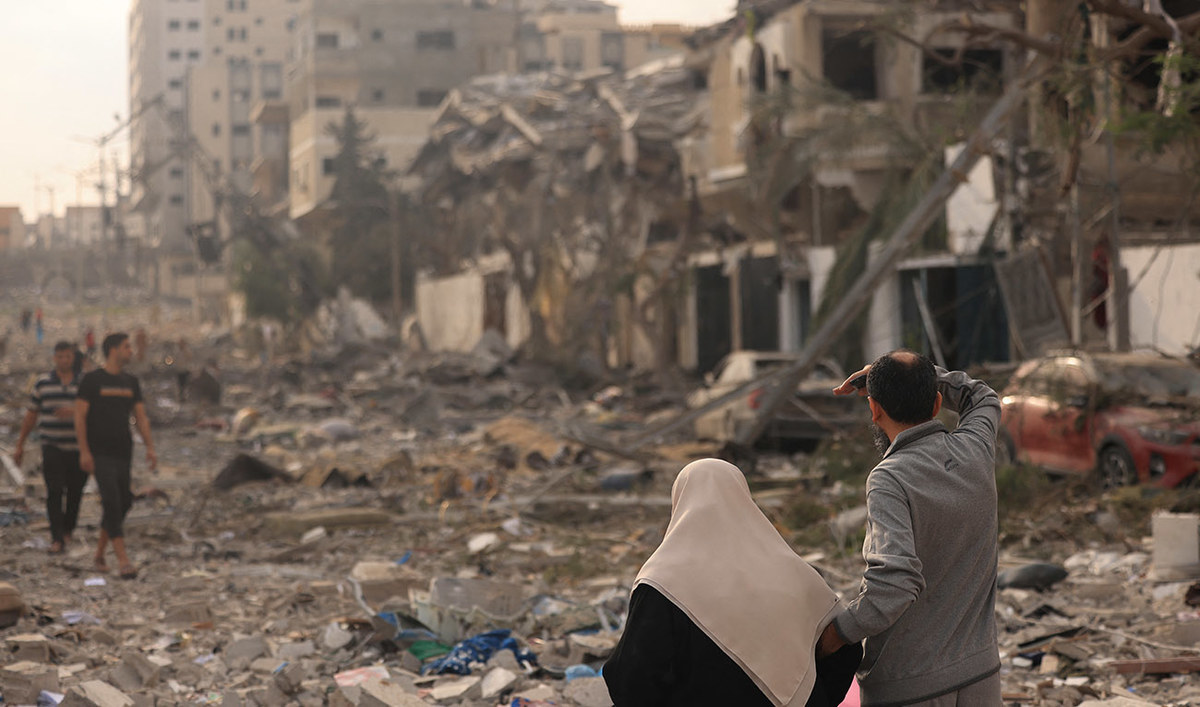ISLAMABAD: Caretaker Prime Minister Anwaar-ul-Haq Kakar on Tuesday characterized the ongoing violence in West Asia as “the war between the oppressor and the oppressed,” as Israel continued to besiege the Gaza Strip and its warplanes pounded residential neighborhoods in response to a recent Hamas attack.
The Palestinian group initiated a surprise attack against Israel over the weekend, describing it as retribution for the deteriorating conditions of its people under Israeli occupation. The ensuing violence has so far claimed at least 1,900 lives on both sides and exacerbated an already dire humanitarian crisis for Palestinians.
“We have a stance: Israel is known and understood to be an occupying state which is what we also believe,” the prime minister told a YouTube channel during an interview. “And we consider the people of Palestine as persecuted. This is the war between the oppressor and the oppressed. More than Israel and Palestine, this [conflict] is between two nations that have remained caught in a specific state.”
Kakar said that Jews were persecuted during the Second World War when Germany was ruled by Hitler, adding as soon as they came out of that situation and established a Zionist state, they started persecuting the Palestinians.
“The biggest party to this dispute are Palestinians themselves,” he continued. “We believe as a state and society that the first right to decide their political future lies with Palestinians.”
However, he mentioned the proposal recommending a two-state solution to the dispute while lamenting that Israel was in a “state of denial” about it.
The prime minister blamed Israel’s intransigence for complicating the situation in the Middle East and compounding the problems of Palestinians.
He also noted that such geopolitical complications were instrumental in pushing young Muslims toward extremism.

Palestinians inspect the massive destruction from Israeli airstrikes in Gaza City's al-Rimal district, on October 10, 2023. (AFP)
“There are two problems – one in Palestine and the other in Kashmir – which have deeply contributed to the radicalization of our population,” he said. “Wherever religion has been used in politics as a tool, these two issues have been joined together quite deeply.”
Kakar said if the world wanted civilizations to coexist peacefully, it will have to realize that the solution to these two problems will be pivotal.
He also categorically denied that Pakistan was trying to shift its Palestine policy, saying that nothing had changed over the years to warrant such a change.
Pakistan’s stance on Palestine had been in place for long, he continued, and the caretaker administration had also been pursuing the same policy.












